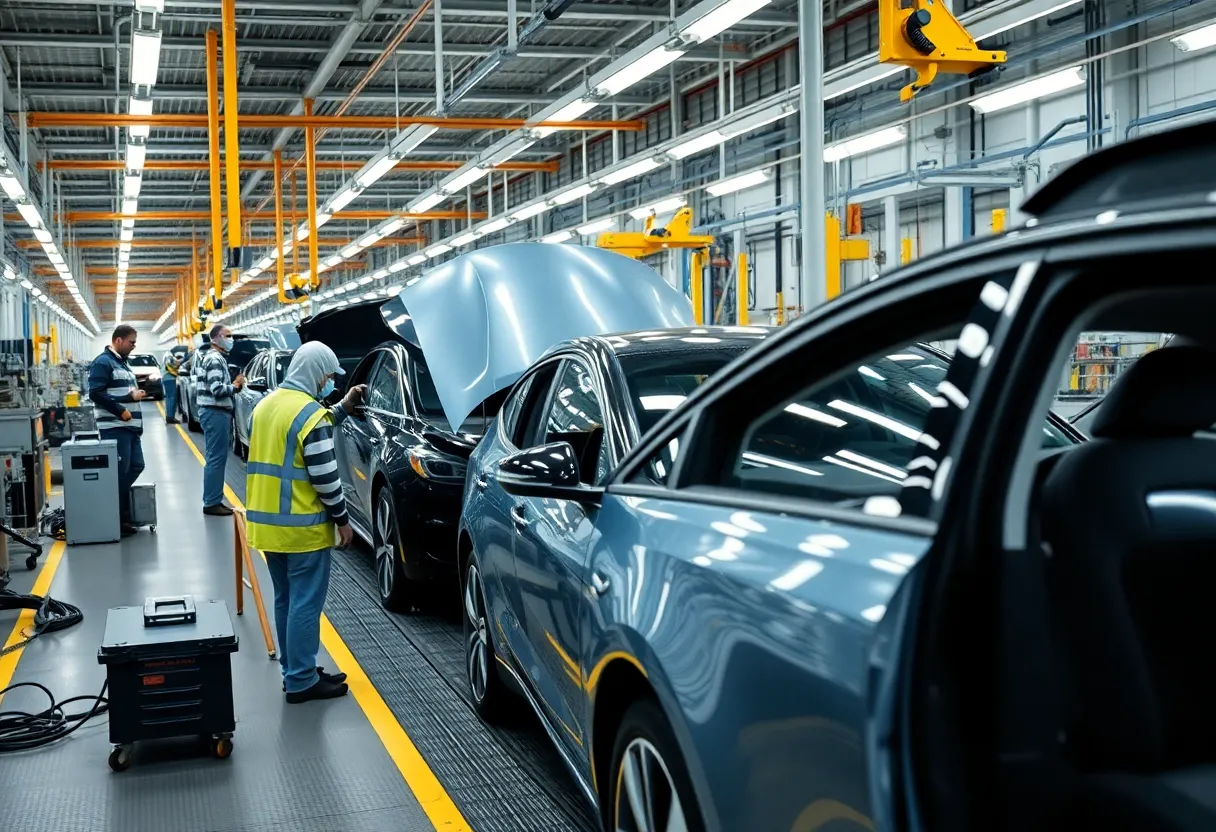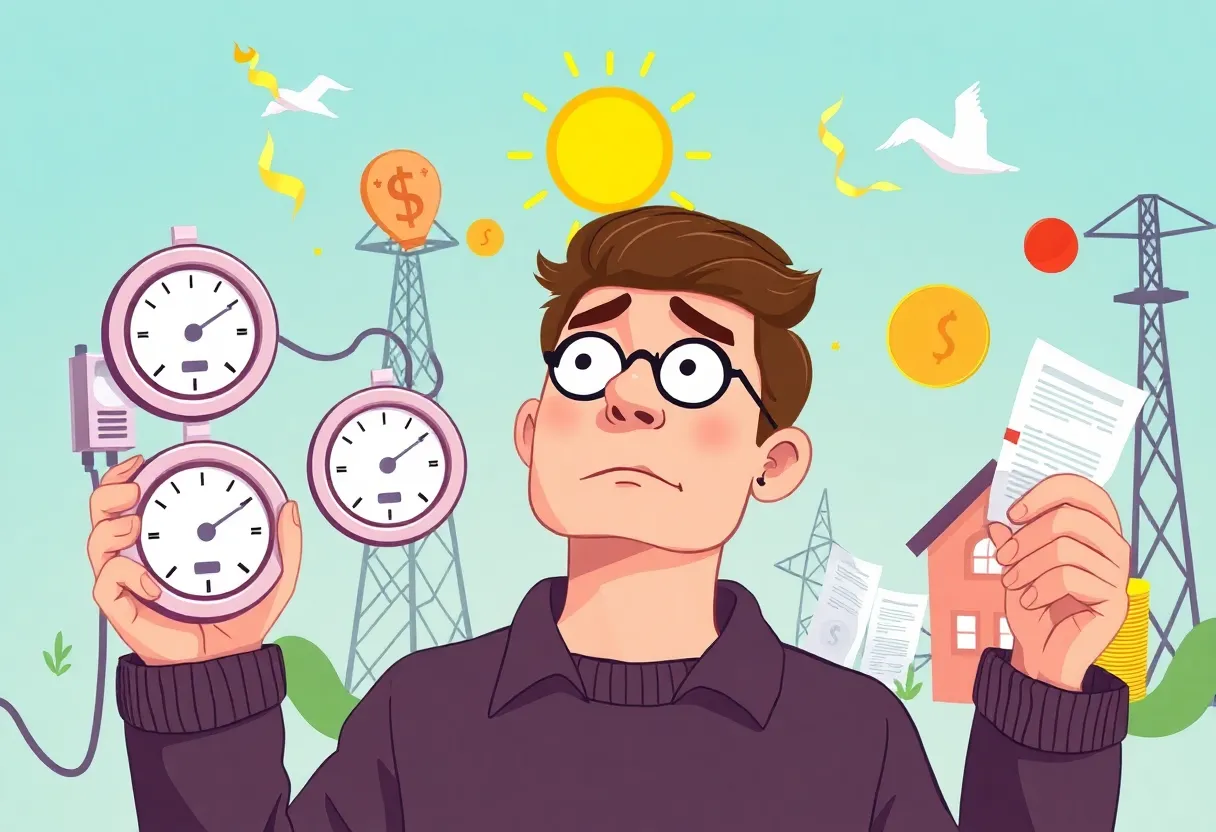News Summary
Michigan’s electric vehicle (EV) industry is experiencing unprecedented growth despite federal policy changes that roll back support for EVs. The state has attracted over $27 billion in investments for manufacturing and battery projects, positioning itself as a leader in the sector. Major automakers like General Motors and Ford are ramping up production and infrastructure, while local dealers invest in training and technology. However, concerns about reducing federal support and rising vehicle costs could impact demand in the long run.
Michigan’s Electric Vehicle Industry Thrives Despite Federal Changes
In the heart of Michigan, electric vehicle (EV) stakeholders are brimming with hope as they navigate through the waves of recent federal policy shifts. Despite President Donald Trump’s recent decision to roll back key EV policies established under the Biden administration, the state is riding the wave of an unprecedented investment boom in the EV sector.
Shifting Policies and Ongoing Optimism
President Trump recently put pen to paper on an executive order that repeals a mandate aiming for 50% of new vehicles sold in the U.S. to be electric by 2030. Alongside this, the infamous $7,500 tax credit for new electric vehicle purchases is on the chopping block, and funding for EV charging stations has come to a halt. But despite these changes, industry insiders are managing to keep a positive outlook.
In fact, Michigan has managed to attract over $27 billion in funding for around 60 manufacturing and battery projects related to electric vehicles. This impressive influx of cash has even outpaced nearby Georgia, which has seen about $26.6 billion in similar investments.
Major Developments in the EV Sector
The state is teeming with activity as traditional automakers pivot to electric vehicles. General Motors is investing heavily in its Factory ZERO, where production of electric Hummers and Silverados has recently been ramped up. Meanwhile, a massive $1.6 billion battery manufacturing campus is in the works in Van Buren Township, with expectations to create more than 2,100 jobs and churn out 200,000 EV battery packs annually.
Ford is also getting in on the action, remodeling the historic Michigan Central train station in Detroit to foster innovation and collaboration specifically around electric vehicles. This revitalization is seen as a significant step toward cementing Michigan’s place at the forefront of the EV revolution.
A Shift in Training and Infrastructure
To meet the growing demand for electric vehicles, local dealers are taking the initiative to invest in training and infrastructure. For example, dealer Eric Frehsée is equipping his dealership with EV-related tools and charging stations, ensuring that his team is ready to meet the needs of today’s eco-conscious consumers. Additionally, Ray Smith is spearheading an EV training program, helping budding technicians understand the cutting-edge technologies associated with electric vehicles.
Challenges on the Horizon
Nevertheless, the landscape isn’t entirely roses. The administration’s policy shifts could potentially dampen demand for electric vehicles, as many consumers rely on federal support like tax credits when considering their purchases. Just recently, the sales growth of EVs has shown signs of a slowdown; EVs accounted for only 8.1% of new vehicle sales in the United States in 2024, according to recent reports.
Bruce Westlake from the Eastern Michigan Electric Automobile Association has raised concerns regarding how less federal support might affect consumer demand. Furthermore, a company called Plug Zen is focused on building out the much-needed EV charging infrastructure for both fleets and workplaces, highlighting a crucial aspect of the EV transition.
The Road Ahead
Interestingly, while some automakers have scaled back their ambitious EV goals, others maintain that they are ready to adapt to these policy changes. However, the challenges don’t stop at policy—they also include rising vehicle costs compared to traditional gasoline-powered cars, which may deter potential buyers. New legislation is even on the table, aiming to eliminate tax credits for consumers and impose taxes on EV manufacturers, further stirring the pot in an already complex political landscape surrounding electric vehicles.
As Michigan forges ahead in the electric vehicle race, stakeholders are leaning on their optimism and innovation to steer through changing tides. The state’s commitment to becoming a leader in the EV industry is evident, despite an uncertain political atmosphere.
Deeper Dive: News & Info About This Topic
- AP News: Trump Electric Vehicle Policy
- Detroit Free Press: Bill to Kill EV Subsidy
- Washington Post: The EV Landscape
- Detroit News: Facts About Electric Vehicles in 2024
- WXYZ: EV Car Rental Option in Detroit
- Wikipedia: Electric Vehicle
- Google Search: Electric Vehicles
- Google Scholar: Electric Vehicles
- Encyclopedia Britannica: Electric Vehicles
- Google News: Electric Vehicles







